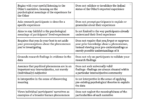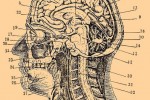Praxis
Jan 17th, 2019 |
By Marc Applebaum

Notes from a seminar I’m giving this weekend introducing phenomenology to psychological researchers. Those familiar with the tradition will see how the epochê, reduction, bracketing, striving for presuppositionlessness, and inquiring into the Other’s natural attitude meanings are represented here–as well the situatedness of research findings–reflecting a particular, psychological interest.
Posted in Feature, Praxis |
Comments Off on Phenom Research: What it is, what it isn’t
Tags: Applebaum, empathy, epoche, intentionality, intersubjectivity, reduction, research
Jan 29th, 2015 |
By Marc Applebaum

Follow the link to my preface to Ferrarello’s book, “Phenomenology of Intersubjectivity and Values in Edmund Husserl.” In this short essay I turn to Husserl’s vision of phenomenology as “wakeful communalization” that must be shared in order to transcend a merely private reflection: Applebaum (2014) Preface to Phenomenology of Intersubjectivity and Values in Edmund Husserl
Posted in Praxis |
Comments Off on Phenomenological community versus solipsism
Tags: Applebaum, Ferrarello, Husserl, intersubjectivity
Mar 27th, 2013 |
By Marc Applebaum

I love Teo and Febbraro’s (2002) observation that “Psychology’s history can be studied as a history of fads” (p. 458). Teo (1996) has written that psychologists “have tended to value meta-theoretical constructions from outside their discipline more than those from inside their disciplines,” with the popularity of these constructions shifting as one or another current
[continue reading…]
Posted in Praxis |
2 comments
Tags: Applebaum, cultural psychology, Husserl, Mohanty
Mar 25th, 2013 |
By Marc Applebaum

I’m happy to expand the linguistic diversity of our blog with this post of mine in Portuguese, which I offer with deep gratitude to the colleagues who volunteered to translate it: Eu ensino uma introdução à investigação psicológica para estudantes de doutorado que dura um ano. Muitos dos meus alunos são psicoterapeutas ou estão em
[continue reading…]
Posted in Praxis |
Comments Off on PhenomBlog em Português: Ser um ‘eu’ significa ser ‘único’?
Tags: Applebaum, cultural psychology, Merleau-Ponty
Feb 21st, 2013 |
By Marc Applebaum

Here is a link to a beautiful essay of Akihiro Yoshida’s, On Tamamushi-iro Expression: A Phenomenological Explication of Tamamushi-iro-no (Intendedly Ambiguous) Expressive Acts. Dr. Yoshida is Professor Emeritus of the University of Tokyo, and Professor of Psychology, Shukutoku University. In Japanese, he writes, tamamushi-iro-no expressions are those that, when spoken, lend themselves to multiple differing interpretations by the one to whom they
[continue reading…]
Posted in Praxis |
2 comments
Tags: cultural psychology, intersubjectivity, Yoshida
Feb 2nd, 2013 |
By Marc Applebaum

Reading J. N. Mohanty’s essay “Husserl’s Concept of Intentionality” in Analecta Husserliana I (1971), the following passage, discussing the Logische Untersuchungen, stood out to me: “The static analysis lays bare the structure of what is called an intentional act whereby the word ‘act’ has to be taken not in its ordinary usage as meaning an activity or a process, but
[continue reading…]
Posted in Praxis |
4 comments
Tags: Applebaum, Husserl, intentionality, Mohanty
Dec 23rd, 2012 |
By Marc Applebaum

Introduction The descriptive phenomenological method of psychological research is rooted in the intentional property of consciousness. Husserl (1983) modified Brentano’s concept of intentionality, expressing it as consciousness acting upon an object or state-of-affairs that is not itself. In other words, embodied human subjectivity relates actively and passively to things that are immanent and external to it
[continue reading…]
Posted in Praxis |
4 comments
Tags: Broomé, Giorgi, Husserl, research
Dec 16th, 2012 |
By Marc Applebaum

Since Husserl, phenomenological philosophers have dialogued with the empirical sciences in an attempt to contribute to a more complete human science—a science that speaks to the fullness of being human. The job of our philosophers, in this context, is to invite an opening up of an epistemological conversation that renews the sciences’ exploration of human
[continue reading…]
Posted in Praxis |
1 Comment »
Tags: Applebaum, human science, Merleau-Ponty, reduction
Oct 29th, 2012 |
By Marc Applebaum

Merleau-Ponty (1968) wrote that questioning does not “fill in the blanks” in our knowledge. Instead, “the questions are within our life, within our history. They are born there, they die there, if they have found a response, more often than not they are transformed there” (p. 105). For phenomenologists, questions of any depth are never
[continue reading…]
Posted in Praxis |
Comments Off on The Internet: Closing or Opening Horizons?
Tags: Applebaum, cultural psychology, postmodernism, technology
Jun 27th, 2012 |
By Marc Applebaum

Here is the presentation I gave in Montreal at the 31st International Human Science Research Conference. My aim was to encourage dialogue between interpretive and descriptive researchers, and clinicians whose work is informed by these perspectives. My premise about the complementarity of description and interpretation is based on Jitendra Nath Mohanty’s work on Husserl’s phenomenology.
[continue reading…]
Posted in Praxis |
Comments Off on Applebaum: Hermeneutics in Descriptive Phenomenology
Tags: Applebaum, Giorgi, hermeneutics, Husserl, research

 Follow
Follow email
email







